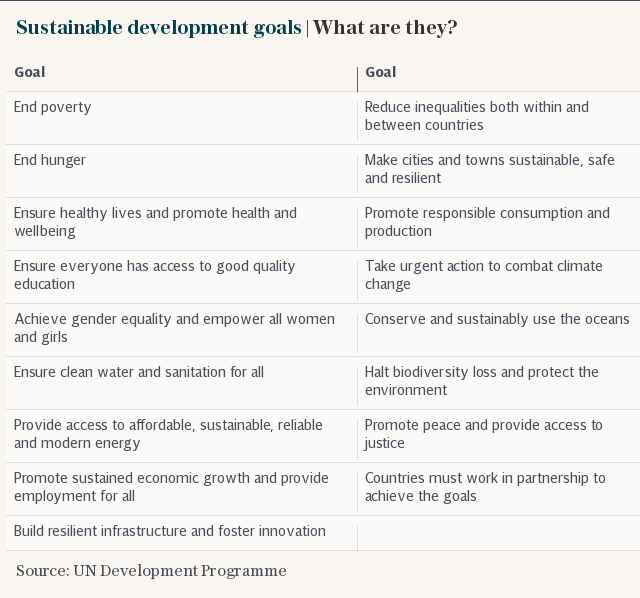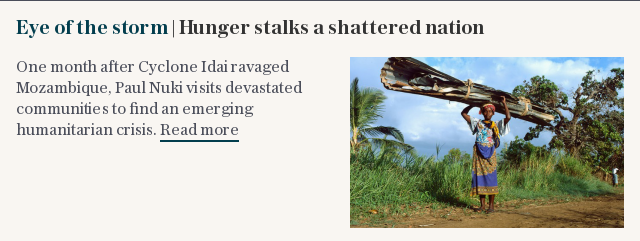Everyone can do their bit to make the world a better place

How much impact can you as an individual have on the world around you? In the UK there are more than 66 million people; in the world nearly eight billion.
Can the actions of one person have an impact on the much bigger picture? Should we care if we are throwing out plastic waste, driving to work or buying unethically produced clothing?
If every one of us took a single positive action each day to make the world a better place, in the UK alone we would take 66 million steps forward.
Back in 2015, when I was the British Permanent Representative to the United Nations, all 193 countries in the world agreed to the Global Goals (also known as the Sustainable Development Goals).
They are a roadmap to make the world a better place by 2030, showing the way for everyone, from individuals to governments, businesses to charities. They bring everyone together to work on specific targets to end poverty, fight inequality and tackle climate change.

Today I’m back at the UN in New York as the UK shares with the rest of the world our progress against the goals.
Our first Voluntary National Review sets out not just what the government has been doing, such as committing to net zero greenhouse gas emissions by 2050 and fighting the spread of Ebola in East Africa, but also what people from across the UK are doing to help make the goals a reality.
We are sharing the stories of British organisations like Olio, which has revolutionised food sharing to prevent waste, and the Torriano Primary School in Camden, whose pupils have stopped using single use plastics after learning about the goals.
There is a lot that we, as a nation, can be proud of. But there is still much to do.
At the Department for International Development, we’re using UK aid to ensure we leave no one behind.
In response to Cyclone Idai in Southern Africa earlier this year, Dfid brought together the best of British and European research and technology to create flood forecasting and hazard maps, allowing the humanitarian response to stay one step ahead.

Through Dfid’s partnership with the NHS, fire and rescue service and the charity UK Med, we deployed the emergency medical team to undertake difficult work in Cox’s Bazar, Bangladesh, to curb the outbreak of deadly diphtheria among Rohingya refugees.
And in New York I will be announcing a new package of UK aid to the Global Fund to End Violence Against Children to help partners so that children in places like Nepal, Sierra Leone and South Sudan can safely go to school.
If you are one of the many people across the UK already part of the movement to make the Global Goals a reality, thank you for everything you are doing, large or small, to make a difference. If you are not, and perhaps have never heard of the goals before, have a think about what positive step you can take, today, to get started.
Please join us on our Global Goal mission to make the world a better place by 2030. Everyone can make a difference.
Matthew Rycroft is permanent secretary at Dfid.
Protect yourself and your family by learning more about Global Health Security

 Yahoo News
Yahoo News 
